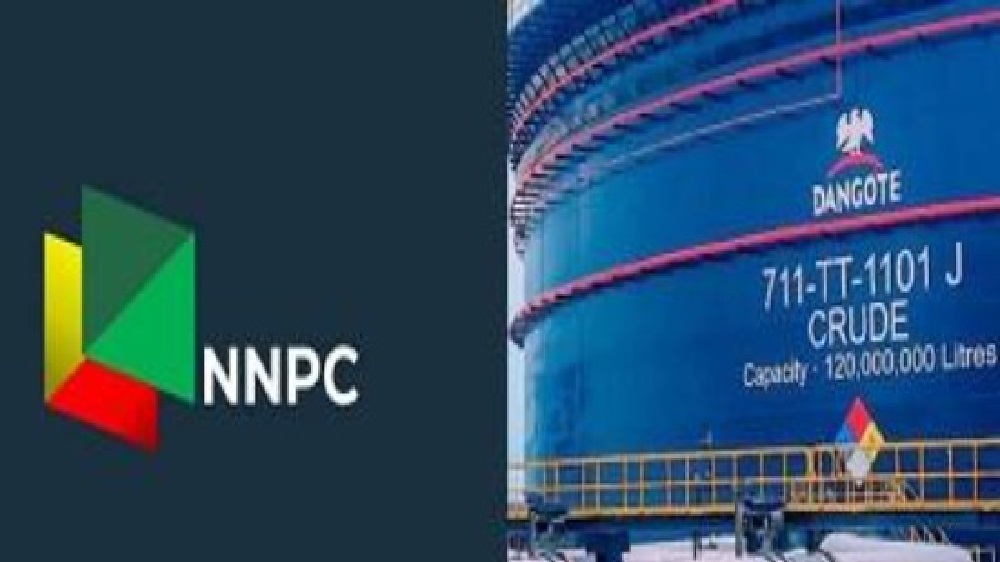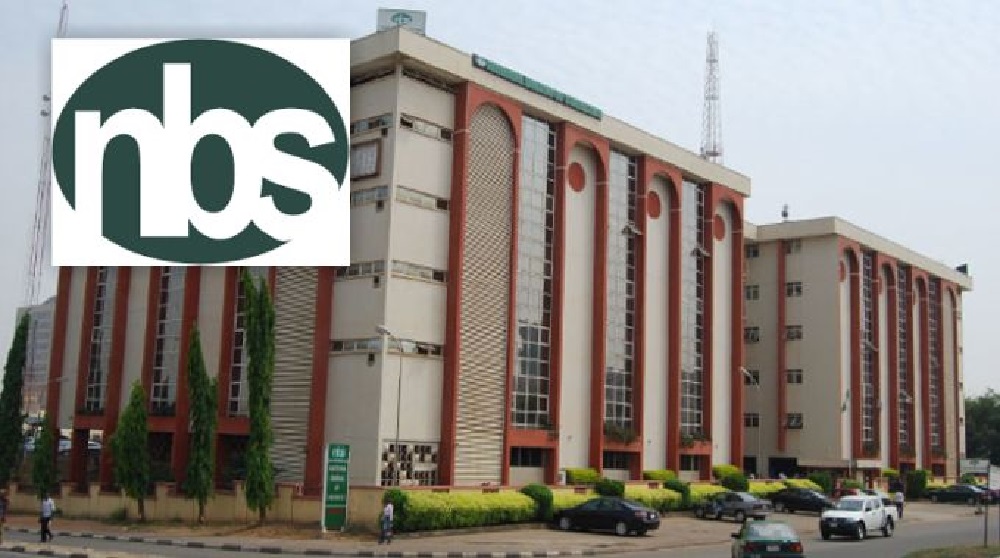Economy
Google To Link Africa, Australia With Landmark Umoja Cable

Google has announced plans to build Umoja, the first-ever fibre-optic cable directly connecting Africa with Australia.
This groundbreaking project is poised to enhance digital connectivity and economic integration between the two continents, the tech giant said in a statement on Thursday.
Anchored in Kenya, the Umoja cable will pass through several African countries, including Uganda, Rwanda, the Democratic Republic of the Congo, Zambia, Zimbabwe, and South Africa, before making its way across the Indian Ocean to Australia.
The route also incorporates the Google Cloud region in South Africa, ensuring robust cloud service connectivity.
Google said, that in collaboration with Liquid Technologies, the Umoja cable will provide a highly scalable network path, featuring multiple access points to facilitate broader regional connectivity.
This infrastructure was designed to deliver reliable and expansive digital services, addressing the chronic issue of network outages that have historically plagued the region, the search engine giant stated.
Named after the Swahili word for “unity,” Umoja is a part of Google’s Africa Connect initiative, which includes the Equiano subsea cable project.
Google said the project was made possible with partnerships from leaders across Africa and Australia, stating that the project aimed to connect African people, businesses, and governments.
Reacting to this development, the U.S. Ambassador to Kenya, Meg Whitman, said access to the latest technology, supported by reliable and resilient digital infrastructure, was critical to growing economic opportunity.
“This is a meaningful moment for Kenya’s digital transformation journey, and the benefits of today’s announcement will cascade across the region,” he remarked.
In addition to today’s infrastructure announcement, Google will sign a Statement of Collaboration with Kenya’s Ministry of Information Communications and The Digital Economy to accelerate joint efforts in cybersecurity, growing data-driven innovation, digital upskilling, and responsibly and safely deploying AI for societal benefits.
Kenyan President, Dr. William Ruto, expressed his pleasure regarding Google’s investment in digital connectivity, calling it a historic achievement for Kenya, Africa, and Australia.
He noted that the new intercontinental fibre optic route would greatly improve the country’s global and regional digital infrastructure.
“This initiative is crucial in ensuring the redundancy and resilience of our region’s connectivity to the rest of the world, especially in light of recent disruptions caused by cuts to sub-sea cables.
“By strengthening our digital backbone, we are not only improving reliability but also paving the way for increased digital inclusion, innovation, and economic opportunities for our people and businesses,” Ruto said.
Since Google opened its first Sub-Saharan Africa office in Nairobi in 2007, it has partnered with governments from countries across Africa on numerous digital initiatives.
In 2021, Google said it committed to investing $1bn in Africa over five years to support a range of efforts, from improved connectivity to investment in startups, to help boost Africa’s digital transformation.
Since then, Google has invested more than $900m in the region and expects to fulfil its commitment by 2026.
The Australian Minister for Communications, Michelle Rowland MP, said, “Diversifying Australia’s connectivity and supporting digital inclusion across the globe are both incredibly important objectives, and Google’s Umoja cable will help to do just that.
“Australia welcomes Google’s investment and congratulates all those involved in undertaking this crucial initiative.”
As part of the collaboration, Google Cloud and Kenya will announce a partnership to strengthen Kenya’s cybersecurity.
The Department of Immigration and Citizen Services is evaluating Google Cloud’s CyberShield solution and Mandiant expertise to strengthen the defence of its eCitizen platform.
CyberShield enables governments to build enhanced cyber threat capabilities, protect web-facing infrastructure, and help teams develop skills and processes that drive effective security operations.
Economy
Dangote Refinery, NNPCL resume fight over $1bn loan

Dangote Group, owners of Dangote Refinery, and the Nigerian National Petroleum Company Limited, NNPCL, have clashed over a $1 billion crude oil-backed loan.
Recall that barely 24 hours ago, in a statement credited to NNPCL spokesperson Olufemi Soneye, the state-owned oil firm said it secured a $1 billion loan backed by crude to support the Dangote Refinery during liquidity challenges.
However, Dangote Group spokesperson, Anthony Chijiena, has described NNPCL’s claim as ‘misinformation’.
The company clarified that the $1 billion crude backed loan is about five percent of the total investment that went into building the 650,000 barrels per day refinery.
According to him, it is inaccurate to say NNPCL facilitated $1 billion for Dangote Refinery amid liquidity challenges.
Chijiena explained that NNPCL had proposed a 20 percent stake investment valued at $2.76 billion in the Dangote Refinery, but that didn’t materialise.
He noted that NNPCL was able to invest $1 billion, which amounts to 7.24 percent equity value.
“Our decision to enter into a partnership with NNPCL was based on recognition of their strategic position in the industry as the largest offtaker of Nigerian crude and, at the time, the sole supplier of gasoline into Nigeria.
“We agreed on the sale of a 20 percent stake at a value of $2.76 billion. Of this, we agreed that they will only pay $1 billion while the balance will be recovered over a period of 5 years through deductions on crude oil that they supply to us and from dividends due to them.
“If we were struggling with liquidity challenges, we wouldn’t have given them such generous payment terms.
“As of 2021, when the agreement was signed, the refinery was at the pre-commission stage. In addition, if we were struggling with liquidity issues, this agreement would have been cash-based rather than credit-driven.
“Unfortunately, NNPCL was later unable to supply the agreed 300 thousand barrels a day of crude, given that they had committed a greater part of their crude cargoes to financiers with the expectation of higher production, which they were unable to achieve.
“We subsequently gave them a 12-month period for them to pay cash for the balance of their equity given their
inability to supply the agreed crude oil volume.
“NNPCL failed to meet this deadline, which expired on June 30th, 2024. As a result, their equity share was revised down to 7.24 percent. These events have been widely reported by both parties.
“It is, therefore, inaccurate to claim that NNPCL facilitated a $1 billion investment amid liquidity challenges.
“Like all business partners, NNPCL invested $1 billion in the refinery to acquire an ownership stake of 7.24 percent. That is beneficial to its interests,” the Dangote Group statement said.
Economy
Nigeria’s National Bureau of Statistics Website Hacked

The National Bureau of Statistics (NBS) on Wednesday announced that its official website has been hacked.
The bureau disclosed this on its X handle.
The NBS announced that it is currently working to recover the website and urged the public to disregard any messages or reports posted on the site until it is fully restored.
“This is to inform the public that the NBS Website has been hacked and we are working to recover it. Please disregard any message or report posted until the website is fully restored. Thank you,” the NBS said.
The NBS is the principal agency responsible for the collection, analysis, and dissemination of statistical data in Nigeria.
The statistics office has recently published several key reports such as the Nigerian Gross Domestic Product (GDP) Report Q3 2024, which provides an update on Nigeria’s economic growth and performance, the Nigeria Labour Force Survey (NLFS) report for Q2 2024, which offers insights into Nigeria’s labor market, including employment and unemployment rates and the Consumer Price Index November 2024, which provides the latest information on Nigeria’s inflation rate, among others.
In November, the NBS said Nigeria’s GDP grew by 3.46 per cent year-on-year in real terms in the third quarter of 2024.
The NBS said this growth rate is higher than the 2.54 per cent recorded in the third quarter of 2023 and higher than the second quarter of 2024 growth of 3.19 per cent.
On Monday, the NBS said Nigeria’s annual inflation rate rose to 34.60 per cent in November from 33.88 per cent in October.
This marks a continuation of the upward trend observed in September, when the nation recorded a reversal of a two-month decline.
Economy
UK inflation rises further ahead of Bank of England rates decision

UK inflation climbed to 2.6% in November, up from 2.3% in October, according to the Office for National Statistics (ONS).
The rise matches market expectations and comes as the Bank of England prepares for its upcoming decision on interest rates later this week.
Core inflation, which excludes volatile items such as food and energy, also increased to 3.5% from 3.3% in October. However, this was slightly below the anticipated figure of 3.6%. Services inflation, closely watched by the Bank of England for signs of domestic price pressures, remained steady at 5%, slightly below market expectations of 5.1%.
Earlier this year, falling inflation allowed the Bank of England’s Monetary Policy Committee (MPC) to lower interest rates in August and November. The headline rate dropped to 1.7% in September but has since been pushed higher by rising energy costs and persistent services inflation.
Despite the recent uptick, the Bank of England is widely expected to keep interest rates on hold at its meeting this week. Markets remain divided on whether a rate cut will come at the February meeting.
Michael Brown, senior research strategist at Pepperstone, highlighted the challenges ahead. “While risks to this base case are tilted towards a more dovish outcome, given increasing signs of overall economic momentum stalling, policymakers will be rapidly seeking convincing signs of disinflationary progress being made, as the economic cocktail facing UK Plc. increasingly becomes a stagflationary one,” he said.
The inflation figures follow Tuesday’s data showing stronger-than-expected wage growth. Average earnings, including bonuses, rose by 5.2%, exceeding the 4.6% forecast and October’s figure of 4.4%.
Chancellor to the Exchequer Rachel Reeves acknowledged the ongoing struggles faced by households. “I know families are still struggling with the cost of living and today’s figures are a reminder that for too long the economy has not worked for working people,” she said.
Reeves outlined recent measures aimed at supporting workers, including no increases to national insurance, income tax, or VAT, as well as boosting the national living wage by £1,400 and freezing fuel duty. “Since we arrived, real wages have grown at their fastest in three years. That’s an extra £20 a week after inflation. But I know there is more to do. I want working people to be better off, which is what our Plan for Change will deliver,” she added.
Inflation is expected to rise further in the coming year as the UK continues to take a more gradual approach to easing monetary policy compared to other developed central banks.
-

 News23 hours ago
News23 hours agoNetizens Slam Lawmakers As They Sing Tinubu’s Anthem At Budget Presentation
-

 News20 hours ago
News20 hours agoFinally, PDP Flushes Out Suspended National Vice Chairman, Ali Odefa
-

 News16 hours ago
News16 hours agoReps Call for Revival of NAPAC to Boost Transparency, Accountability
-

 News16 hours ago
News16 hours agoReps Recommends Delisting NECO, UI, Labour Ministry, 21 Others From 2025 Budget
-

 News10 hours ago
News10 hours agoLawmaker laments over 2023, 2024, 2025 budget running in one circle
-

 News9 hours ago
News9 hours agoVideo: Tinubu Arrives Lagos, Meets Old ‘Friend’ Papa Ajasco
-

 News22 hours ago
News22 hours agoPRESIDENT BOLA AHMED TINUBU TEXT OF THE 2025 BUDGET
-

 News17 hours ago
News17 hours agoNigeria Needs Comprehensive Reforms To Expand Its Tax Base – Speaker Abbas








